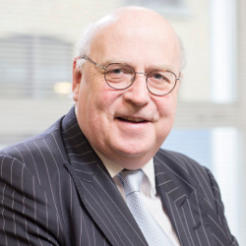The Charity Commission has said it will not ask charities for their campaigning spend in their annual returns for 2015, but sector infrastructure bodies have criticised a suggestion it may ask for this information in future years.
In a consultation in June the regulator proposed including campaigning spending in the second part of the annual return.
The annual return is divided into Part A, which asks for basic information and must be completed by all charities with incomes over £10,000, and Part B, which must be completed by all charities with incomes over £500,000, and contains much more detailed information.
The regulator has steadily increased the amount of information required in Part B over the past few years, and this year proposed several further additions, including campaign spending.
The Commission said it would not press ahead this year with the campaign spending proposal after consultation responses criticised the idea. But it has said it may reconsider the issue when it consults on what information should be included in the 2016 annual return.
“The Commission has listened carefully to the arguments made by charities and its decisions take into account concerns that were raised about some of the proposals,” the regulator said in a statement. “But the Commission maintains that charities’ campaigning expenditure is a matter of public interest and will revisit the issue when it considers changes to the annual return for 2016.”
Umbrella bodies said they welcomed the decision not to go ahead with the proposal, but were disappointed it remained on the agenda.
Sir Stuart Etherington, chief executive of NCVO (pictured), said: “We are in favour of transparency and we have done much to advocate greater transparency ourselves, for example on executive pay, but their proposal as it stood was unworkable.
“There would be no logic to putting forward the same proposal in a year's time. Trying to put a meaningful single figure on campaigning will be as impossible then as it is now.”
Peter Horner, policy officer at Navca, said: “The proposals were disproportionate and impractical. Navca and our members raised the concerns of small volunteer led charities that make such a vital contribution to local community action.
“We will also oppose any future plans to re-introduce the proposal on campaigning expenditure. This is a further attack on the independence of charities to freely campaign in a non-political way.”
Other changes for 2015
The regulator has also shelved plans to ask for more information from charities with incomes between £10,000 and £500,000.
But the annual return will include several new questions, including asking charities how much income they received from central and local government contracts and grants, whether the charity has a formal staff remuneration policy, and whether it has reviewed its financial controls.
Caron Bradshaw, chief executive of the Charity Finance Group, said that she was concerned about the implications of the plans to require charities to disclose public sector income.
“While we do not object in principle to the decision to include additional reporting requirements on public service delivery income and government grants, we are troubled by what this information may be used for,” she said. “We want to make sure these disclosures do not result in undue burdens or misleading assumptions about the relative worth of different charities.
“There is a distinct danger both could be an unhappy consequence with this addition.”









